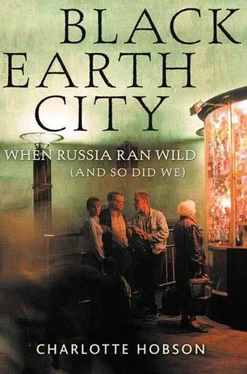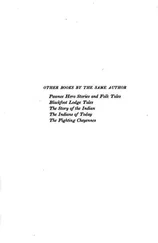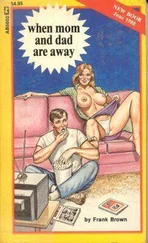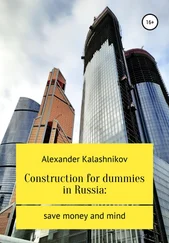“Farewell to our flag!” shouted Oleg.
“Hurrah!” cried the crowd. People were coming out of their rooms and joining in. One of the English boys produced a Soviet flag and ran in front, waving it and pounding on doors. A crescendo of voices continued with the chorus:
Glory to our free Fatherland
The friendship of peoples is our safe stronghold!
The party of Lenin, the power of the people
Will lead us to the triumph of Communism!
“Farewell to the party of Lenin!” yelled someone.
“Hurrah!”
“Farewell to Young Pioneer uniforms with their little caps!”
“Hurrah!”
“Farewell to ‘Workers of the world, unite!’”
“Hurrah!”
“Farewell to the Communist Party!”
“Hurrah!”
“Farewell to Lenin! Let him point his finger somewhere else!”
“Hurrah!”
“Farewell! Farewell! Farewell!”
Much later that morning, at about six, when Mitya had gone home and I was just finishing up the champagne with an English boy called Jim, Viktor appeared and said, “Let’s go out, see what’s on the streets.”
“Oh, Viktor, I’m finished, I’m just going to bed,” I said.
“Come on! It’s the first day of a new era, don’t you want to congratulate people?”
So Jim, Viktor, and I set off. It was cloudy and warm outside, and the streets were almost empty. Viktor marched about making gestures like a poet. An elderly couple were walking their elderly dog. “Happy New Year!” Viktor spoke up in his stentorian voice and they smiled, a little taken aback. Jim found Young Pioneer badges for sale in a kiosk; they bore a flame surrounded by the motto “Always ready!” We pinned them to our hats. Viktor was striding toward a streetcar. “Happy New Year!” he greeted the driver, blowing her a kiss.
We were heading, inexorably, for the station, partly because I had a vague idea that we might see Sergei or the plums again, partly because we were always attracted to the railways, the trains idling on the way to Sofia, Odessa, and the Far East. There was always commotion going on, even at 6:00 A.M. on New Year’s Day. The waiting room was filled with refugees from the wars in the Caucasus who shifted and moaned on their bundles. People hurried to and from trains, policemen strolled about with a proprietory air, and the eternal row of babushkas gossiped by their buckets of meat pies, boiled potatoes, and bottles of Moskovskaya vodka with crooked labels. Viktor walked among them, spreading his congratulations, and where he went I followed with the packet of M my father had left me, doling them out into mittened palms. “Little chocolates,” I explained. “For health and success.”
The long-distance trains were standing close by, and as we wandered along we saw an open window. Without any further discussion we scurried across the tracks, climbed in, and settled down to sleep and wake up the devil knows where. We’d only been in our compartment a couple of minutes when the conductor came upon us, blazing with fury.
“Happy New Year,” said Viktor gently, kissing her inflamed cheeks.
She suddenly simpered and looked at the floor, saying, “Oh well, and new happiness to you all, too.”
Her arrival put paid to our plans for a long-distance journey, however, so we went to Lipetsk, Viktor’s hometown, instead. The early-morning passengers on the elektrichka wore stoical expressions as they huddled in the corners away from the broken windowpanes. They watched with a certain pleasure as Viktor and Jim took their shirts off and we sang for the two hours of the journey, a sort of Schadenfreude at seeing us ruining our health by sitting in such an icy draft. We took our revenge by inciting the husbands to drink with us.
“Sasha, come on. Join us!”
Sasha’s wife muttered furiously in his ear and he raised a limp hand in our direction to say, “Thanks, guys, but I really can’t, you understand the situation.”
But we showed no mercy and kept on at him. “Join us! It’s a holiday. Just one!”
Two days we spent in Lipetsk, and I remember little of it but a huge reproduction of a lake surrounded by birch trees that covered an entire wall, and dancing with a crowd of blond girls and black-haired husbands, and more vodka, and the feel of a brown blanket under my cheek as I finally fell asleep some time that evening. No other coherent thought crossed my mind.
When we arrived back in Voronezh, Mitya was waiting, furious. Why hadn’t I told him where I was going? Why hadn’t I called? He’d worried. He’d felt a fool, not knowing.
To me, with my hangover, it seemed only reasonable that such a new year should take longer than usual to be born. But Mitya was hurt. At the end of our first serious argument, he walked away from me, sticking his hands in his pockets and hunching his shoulders. I should have gone after him. Instead I stood on the hostel doorstep and watched until he disappeared.
11
The House of the Deaf and Dumb
A newspaper cartoon shows a lone demonstrator waving a banner that reads “I don’t understand anything.”
THE TIMES , OCTOBER 25, 1991
Lapochka swung open the door to his room before we had time to knock.
“Look at the doorbell,” he boasted.
A lightbulb flashed when the button was pressed.
“This is a house for the deaf and dumb!” He grinned at Mitya and me, delighted. “It’s full of surprises. I had an idea the house would be very silent, but in fact they make so much noise. They are always slamming doors, crashing pots in the kitchen, stomping up and down the corridor, and I can hardly ask them to be quiet, can I? Would you like tea?” Lapochka arranged some chairs around his table. He had been given the job of boiler stoker for the winter in the house, in return for which he received a pitiful salary and this room, which was full of old stage sets and half-finished canvases. “The previous boiler stoker was an artist,” he explained. “Anyway—I’ve already learned one concept in their language, and that’s this.” He tapped his forehead. “Guess what it means.”
“Crazy? Clever?”
“Thinking? Understanding? Got a headache?”
“No, no, no. Think laterally. It means grass! Two old guys here sell it to me. The first time they came to my door and stood there tapping their heads, well, I was a little bemused. Up till then, our communication had mainly consisted of them stamping their feet and going ‘Brrr,’ and me stoking up the boiler a bit. But the head tapping confused me until they brought out the grass. Then I started laughing and they laughed too, and now we’ve got a deal going.”
There were a great number of deaf and dumb people. At the beginning their quietness made them difficult for me to see: when everything was unfamiliar, the noisy claimed my attention first. Later the pool of silence around the deaf and dumb rang louder than voices, and I found myself noticing them everywhere. In the shop known as the Iron, or down at the station, they would be standing in a group, having an animated, silent conversation. At the war memorial and other sights, they were usually pointing excitedly. There were particular bars where they met, silently, to get rollicking drunk. I saw them parting at bus stops with a slap on the back and the signal that we would use to mean “Telephone me.” This was one of their many mysteries that I never managed to penetrate.
Lack of hearing aids and speech therapy, or rubella, or radiation—who knows why there were so many? The deaf and dumb kept themselves separate, and even Lapochka did not really manage to make friends with them. When he tried to ask the old guys on his corridor about their lives, they grinned and gave each other a look. Then one covered his mouth, and the other his ears. Lapochka understood. “Hear no evil, speak no evil.”
Читать дальше












